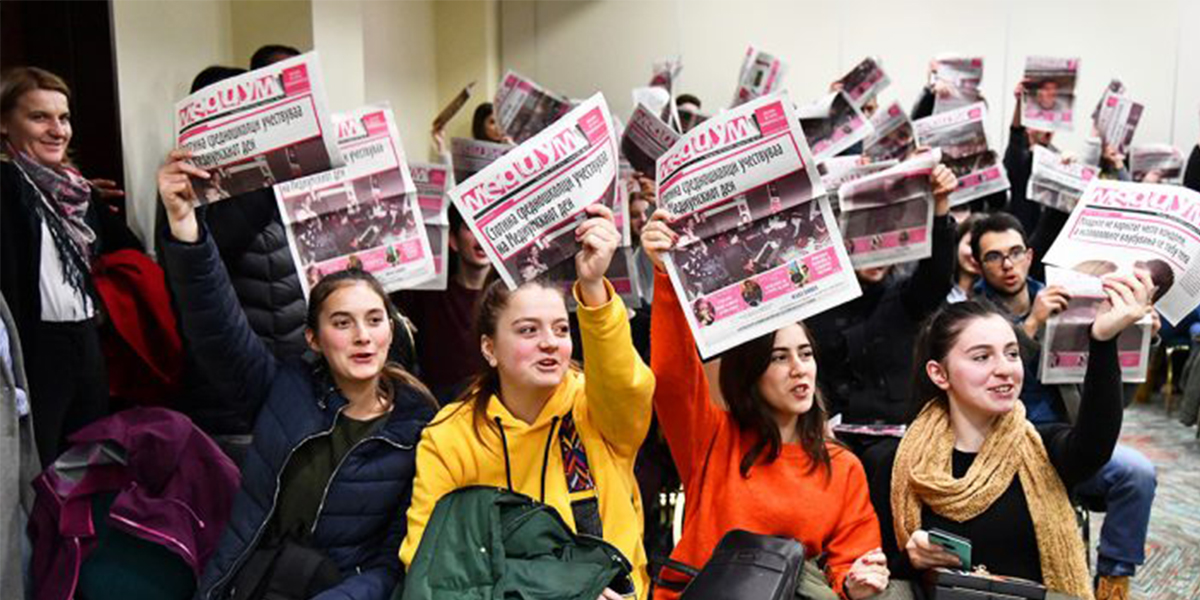The European Commission chose the MAMIL project of the School of Journalism and Public Relations as one of the 10 best media literacy projects in Europe for 2019.
On March 19th in Brussels, representatives of the High School will present their activities promoting media literacy, with which they will try to win one of the three prestigious prizes awarded by the European Commission:
award for the most innovative media literacy project;
award for the most educational media literacy project; and
award for a project with the greatest potential for the promotion of media literacy.
The presentation of the 10 best candidates will take place within the framework of the “Informed Citizens in the Digital Age” conference, which is one of the events of the European Media Literacy Week organized by the European Commission every year. A special jury committee, composed of renowned professors and media literacy experts, will announce the decision at the last session of the conference.
The high school will present the MAMIL project (Media Literacy in an age of news overabundance: Macedonian Coalition for Media and Information Literacy) that it implemented from 2016 to 2018 with its partners – the daily newspaper “Nova Makedonija” and the Institute for Diversity in the Media from London. The project was financed by the European Union.
MAMIL’s activities were aimed at several target groups: high school students, civil society organizations and media, and the public. All news were (and still are) regularly published on the specialized website for media literacy www.medium.edu.mk. During the three years, the high school students were involved as journalists in the high school newspaper “Medium”, which is a monthly edition that has been published as a sub-sheet in “Nova Makedonija”, the so-called. Media laboratories, i.e. the interactive lectures on journalism in secondary schools taught by lecturers from the High School and experienced journalists from the newspaper “Nova Macedonia”, the secondary school competition for the best media product “Express yourself through the media” and the media literacy summer camp, which in June 30 students participated who in four days managed to produce a TV show and make photo stories. Every December, the High School organizes a Media Day where 10 media outlets, including the Macedonian Television, host 100 high school students who get to know the work of journalists and the function of the media in society.
In 2016, the High School founded the Coalition for Media Literacy, consisting of eight civil society organizations and the same number of media. Through training and mentoring, Coalition members learned why media literacy is important and how everyone can be an active stakeholder in society and bring about change using the potential that media offers. Partnerships between the media and the civil sector resulted in media production of content that addressed the rights of marginalized groups and education of the audience about the work of the media and the public interest. All members of the Coalition also joined the Network for Media Literacy, which was founded in 2017 by the Agency for Audio and Audio Visual Media Services.
The third segment of MAMIL is continuous education about why it is important to critically perceive media content. Through the five Mediana videos, with the young YouTuber Izebella Pan, the High School explained five aspects of media literacy: what it is, how to have a responsible and ethical online life, learn about the basics of journalism, how to deal with fake news and how to be an engaged audience. In cooperation with the Institute for Diversity in the Media, the University made the Media Literacy Handbook for youth, media and civil society organizations (available in Macedonian, Albanian and English).
Through this project, they conducted two very significant researches in the area: in 2016, the High School mapped the practices and the concept of media literacy in secondary education, in the civic sector and the media, sublimated in the report Media literacy in Macedonia: the missing link for active citizenship. Two years later, the High School invited the Bureau for the Development of Education to be involved in the analysis of media literacy in primary education, and the findings of this research, which also offers a comparative analysis of the treatment of media literacy in Slovenia, have been translated into Media Literacy in Macedonia: an attempt at implementation in primary education. The survey is available in Macedonian, Albanian and English.
For all activities in the MAMIL media literacy project, watch the 15-minute video.






